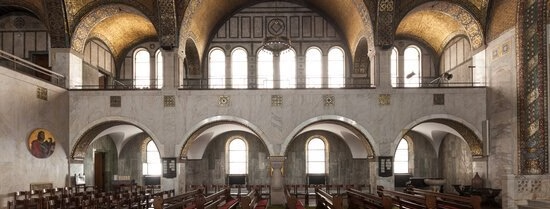"Meat, fish, or vegetable?" That's the question. It was presented to me last Friday for the dinner that was organized at my faculty in Tilburg because there was a lustrum to celebrate. I chose the venison steak. My neighbor opposite to me, also a professor, chose the venison steak. Our director (f) chose vegetable and so did the young postdoc next to me. The day after, I came across the research that the Nederlands Dagblad and the organization GroeneKerken had carried out by I&O Research. The steak was still not good. Because what did this research show? Although four out of five Christians are concerned about climate change and global warming, we do eat more meat. Ouch! Very special how I react to this observation in my inner room. "It must have been a wild deer that had a good life," I thought. Thinking in this way, your theologian columnist thus typically turns out to be one of those intellectuals who, thanks to his cognitive skills, is perfectly capable of clearing himself morally. And fool himself. Psychologists call this the fudge factor. The more you've learned, the more it turns up. So be careful with that kind of people.
Catholics should know better than that thanks to their bishops in England and Wales. In 2011, they already suggested that Friday be reinstated as a day of fasting. Because Christ died on Friday, Catholics never ate meat but fish on this day. Neighbours of Catholics did this because otherwise they would be caught in that fishy smell. Catholics in the USA took this fasting commandment so seriously that McDonalds introduced the Filet-o-Fish. About 28 percent of British Catholics, according to Cambridge University researchers Shaun Larcom, Luca Panzone and Po-Wen She, heeded the call at the time. They calculated that therefore 42,000,000 fewer meat meals were served in England per year. Thanks to Friday's 'fasting', 55,000 tons of CO2 were avoided. And then the researchers have not even included the neighbours in the calculations.
Now, according to the Annuario Pontificio, the Catholic Church has more than 1.2 billion members. If the Pope, the researchers say, urged his turbo saints and off-peak Catholics to revert to Friday's fasting and abstain from meat, it would save millions of tons of carbon dioxide emissions each year. In fact, as the largest soft-power in the world, the Catholic Church is in the exceptional circumstance to combat climate change like no other. Provided all Catholics would listen to the Pope and get their neighbours back on track, his call to fast in honour of Christ and for the preservation of Mother Earth would lead to a truly immense reduction in emissions. After all, the meat industry is one of the largest emitters of greenhouse gases.
- Related links
- Study the research

